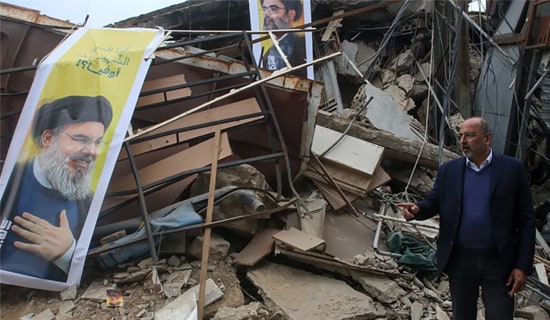Following are excerpts from a report on a raid by Iraqi authorities on an Al-Qaeda cell in Baghdad, which aired on Al-Arabiya TV on September 9, 2011.
Commander: "Be prepared to carry out this mission."
Reporter: "This was the beginning of a swift operation. We were allowed to film it, but they did not reveal the exact location to us, pointing only to a broad geographical area on a military map [of Baghdad]. Nevertheless, we understood that the target was an Al-Qaeda cell. Later we learned that this cell had specialized in attacks that spread terror in northern Baghdad. The orders were summed up in a few words, because only three hours were allocated to the operation."
Commander: "You have ten minutes from now to prepare the soldiers. You will carry out this mission tonight. Understood? Good luck."
Reporter: "We have an eyewitness account through image and sound. For the first time, the camera crossed a forbidden line, [filming] the mission of this unit, which has been confronting Al-Qaeda for the past seven years, but staying out of the limelight.
"We will be accompanying the elite Unit 54 of the Iraqi army on a night mission." […]
Footage of Iraqi elite troupes making an arrest in the middle of the night
"This scene of detention recurred in three additional homes, bringing the total to four targets arrested in four homes. We were forbidden to film the fifth target after his arrest, because he was the commander in charge of ten districts in the capital. The other four said the same thing: 'We were merely following orders.'
"The decision to return to base was postponed, and the operation was extended by another hour, in order to search for weapons with silencers. They were discovered after carrying out a meticulous search in fields enveloped in darkness and desolation. Luckily, none of the attacking force or the five prisoners were harmed." […]
Commander: "Sarmad, when were you born?"
Sarmad: "In 1991."
Commander: "And you?"
Al-Qaeda operative: "In 1992."
Commander: "When were you born?"
Another Al-Qaeda operative: "In 1989."
Commander: "And you?"
Another Al-Qaeda operative: "In 1986."
Commander: "Note that Al-Qaeda is focusing, at this stage, on [the recruitment] of young men, who were led astray at a young age. Every attack carried out by them was done for a price – between 100 and 300 dollars."
Reporter: "[Lack of] ideological support has perhaps become Al-Qaeda's greatest problem when it comes to recruiting fighters from within [Iraq]. Due to the fact that the security forces are focusing on the commanders alone, and since the options open [to Al-Qaeda] are dwindling, the only option left is to recruit minors."
Commander: "The assassinations have an effect on the mental state of the citizens. They are easy to carry out, and it is difficult to expose the cells that specialize in assassination." […]
Reporter: "Each of the four detainees has a different life story, but they all keep saying that they were following orders. They never imagined that one day, they would find themselves behind bars because they are mujahideen. This is what their commander drilled into their tender minds, so that they would become killing machines, ready for action upon demand.
"The cell commander is the oldest in the group, and he was constantly on the move in order to keep his activity clandestine. He was the only one to undergo thorough training by Al-Qaeda in the use of a weapon with silencer, so that he could be the cell's sniper, and could, in turn, train the members under his command. [...]
"Killing was not enough for this commander. Muhammad Al-Nadim's cell strived to distinguish itself by the swiftness of its operations, by its ability to move around, and by the complete obedience of its members, not to mention their mutilating the corpses of their victims, in order to leave a stamp of terror in every region through which they passed.
"This is precisely what Al-Qaeda is looking for, after the deterioration of its media machine. After a day of interrogation the cell commander confessed to having carried out 13 well-planned the organized assassinations and to having pulled the trigger himself." […]





